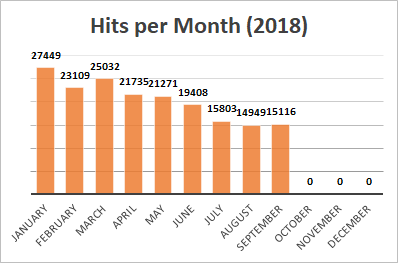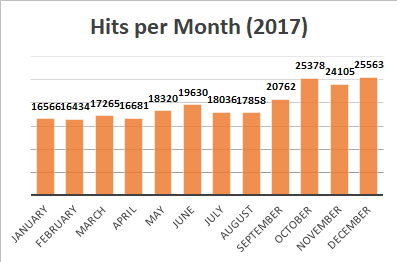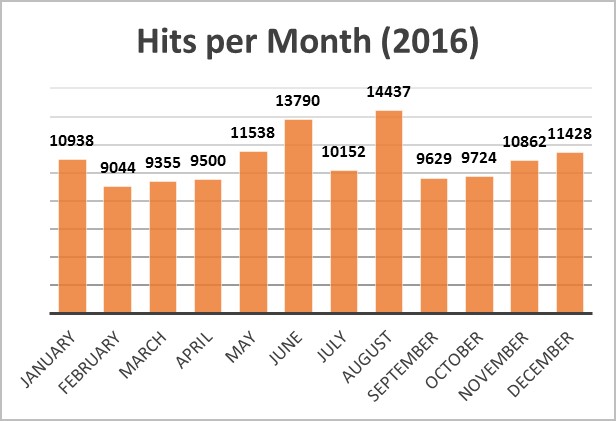RSPP Special Issue Award
Elisabete Martins
CALL FOR PAPERS_INTERNATIONAL CONGRESS ON HIGH-SPEED RAIL_SPAIN 2017
Dear colleague,
We are pleased to announce the International Congress on High-speed Rail: Technologies and Long Term Impacts to be held at the University of Castilla La Mancha (Spain) on October 4th-6th, 2017.
Considering that High-speed Rail has been in operation for more than half a century in Japan and thirty-five years in Europe, this Congress aims to discuss and debate the long-term Technological, Socio-economic and Transport/Territorial impacts of High-speed Rail and to develop a better understanding of the planning criteria for the future.
As you can see in the attached Call for Papers, contributions are welcome on a wide range of topics and participants are encouraged to take part in this event by sending an abstract before April 5th, 2017. Due to the relevance of the topic, our aim is to contribute with the publication of different Special Issues in high-quality journals gathering some of the papers presented at the Congress (authors interested in this possibility should consider the requirements established in the Congress Website).
For more details, please check the Congress web page:
Finally, we would be really grateful if you could distribute this Call for Papers among those of your colleagues that may be interested on the Congress topics.
We are looking forward to seeing you next October in Spain.
Kind regards,
Inmaculada Mohíno
PhD in Territory, Infrastructures and Environment
City and Regional Planning Research Group
University of Castilla-La Mancha
Avda. Camilo José Cela s/n – 13071 Ciudad Real (Spain)
This email address is being protected from spambots. You need JavaScript enabled to view it.
Cell: (+34) 626.24.55.46
21st Air Transport Research Society World Conference - Call For Abstracts
|
|||
|
|||
|
Call for Papers for a special issue of The Review of Regional Studies
Call for Papers for a special issue of The Review of Regional Studies
This special issue seeks to explore the relationship between the use of targeted tax exemptions or breaks and other forms of incentives to attract and retain businesses and ensure a prosperous local economy. Targeted incentives refer to exemptions in taxes provided to selected firms as opposed to across the board tax cuts. The special issue seeks to address broad themes like, Do targeted incentives contribute to or reduce economic freedom? Can targeted incentives generate a prosperous regional economy? Are targeted incentive deals an example of cronyism?
The special issue is receptive to papers pursuing these themes using a variety of methods, including literature reviews, meta-analyses, and case studies, in addition to theory and empirics, as well as papers addressing a variety of specific topics related to the broad themes.
Papers for the special issue could address topics including: A review of economists’ analysis and opinions regarding economic development over time; the diffusion of incentive programs across jurisdictions; whether government revenue lost due to incentives leads to increases in tax rates; whether incentive deals approximate incentive-compatible contracts between local governments and businesses; are political connections indispensable to receive targeted incentive deals; whether mobility and interjurisdictional competition increases the ability of less politically connected firms to incentives; whether economic freedom and prosperity is increasing or decreasing in regional economies or states that have most aggressively pursued targeted incentives for business, and whether the welfare effects of targeted tax breaks differ from financial assistance to firms.
Papers must be submitted by May 1, 2017, with the special issue to be published in late 2017.
If you would like to discuss a topic for the special issue prior to submitting an abstract, please contact the editor of the special issue directly (This email address is being protected from spambots. You need JavaScript enabled to view it.).
To prepare papers for submission to the special issue, sessions will be organized at the Southern Regional Science Association (SRSA) meetings in Memphis, March 30-April 1, 2017. The Mercatus Center and Institute for Humane Studies have travel awards available to enable authors from selected papers to attend the meetings and present their papers for feedback prior to submission for the special issue. Papers can be submitted for the special issue without being presented at the SRSA conference, and papers selected for the sessions are not assured of acceptance in the special issue.
Sessions Information
The Mercatus Center at George Mason University, the Institute for Humane Studies, and the Manuel H. Johnson Center for Political Economy at Troy University will organize sessions at the 2017 Southern Regional Science Association meetings in Memphis, March 30 – April 1, to help prepare papers for submission to a special issue of The Review of Regional Studies on the general subject of “Targeted Economic Development Incentives, Economic Freedom, and Prosperity.” The call for papers for the special issue can be viewed here. Two sessions will be organized at the SRSA meetings. Travel support for one author of papers selected for the sessions will be available from the sponsoring organizations, and there will also be a dinner and reception for the contributors to the sessions during the conference.
To be considered for the sessions, authors should submit an abstract of not more than 300 words detailing the topic, methods, and expected contribution of their paper by January 10, 2017 to Scott Eastman (This email address is being protected from spambots. You need JavaScript enabled to view it.). Authors of papers selected for the sessions will be notified by January 20, 2017, and a completed draft of papers for the conference will be due by March 1, 2017. In addition to consideration for the special issue of The Review of Regional Studies, papers will be additionally considered for publication as Mercatus Working Papers.
Please share with others who might be interested.
Call For Papers Southern Regional Science Association Annual Conference
Call for Papers - 2017 SRSA Meeting -- Memphis, TN
Join us for the 56th Annual Meeting of the
Southern Regional Science Association
Memphis, TN
@ the Marriott Memphis East
March 30 - April 1, 2017
Please visit the conference website to submit an abstract, register, and reserve your hotel room - https://www.srsa.org/conferencesub.htm/
2017 SRSA Conference Website
Please spread the word, share this with others who might wish to attend!
Southern Regional Science Association
________________________________________
UNDERGRADUATE POSTER SESSIONS
________________________________________
For the first time, the 2017 conference will include a special undergraduate research poster session. We will also organize other activities for the undergraduate students to expose them to research and regional science and to make the conference meaningful for participating undergraduates.
The poster session will include 3 to 5 minute presentations by each student describing the poster and research, followed by informal browsing and discussion about the posters. To encourage participation, SRSA will waive the registration fee for undergraduate students who participate in this session. However, to ensure some level of quality, each student will be required to have a faculty sponsor (whether or not the sponsor is able to attend).
Do not worry if you think the research is not “regional” enough. Since we hope this session will encourage exploration of regional science and research by undergraduate students, we will accept a relatively broad range of research topics.
In January, we will post an online application for those students who are interested in attending. In the meantime, please help us by spreading the word about this unique opportunity! Also, please be on the lookout for potential student participants. Perhaps a paper or project from one of your classes might be turned into a research poster by a student considering graduate school. Or, maybe you have an undergraduate student who is working on a thesis and he/she could present those results.
________________________________________
2017 Barry M. Moriarty Graduate Paper Competition
Papers due by February 15, 2017
________________________________________
The Southern Regional Science Association (SRSA) awards an annual cash prize to the graduate student submitting the best paper in Regional Science. In 2017, the prize is $1,000.
Papers on any Regional Science topic may be entered into the competition. Papers should represent original research. Maps, illustrations and other audio-visual materials should be designed or constructed by the author.
The following qualifications apply:
• The student must be enrolled full-time at an accredited academic institution for some or all of the year following March 2017. The graduate student must still be enrolled at the time his or her paper is submitted;
• The student must be the sole author and must be sponsored by a member of SRSA; and
• The winning student must present the paper at a session of the 56th Annual Meeting of the SRSA, March 30 - April 1, 2017, in Memphis, TN, using the award to defray costs of attending.
Papers should be double-spaced, no more than 25 pages in length, and written in the style of the SRSA’s Review of Regional Studies. A cover page should include the paper's title and abstract and, for both the author and the sponsor, full names, addresses, telephone numbers, and e-mail addresses.
A copy of the paper must be submitted via e-mail to Michael Lahr (This email address is being protected from spambots. You need JavaScript enabled to view it.), 2017 Graduate Paper Honors Chair.
Deadline for submission: February 15, 2017.
Please share with others who might be interested.
20th Anniversary Uddevalla Symposium 2017
Call for Papers
20th Uddevalla Symposium 2017 on: Innovation, Entrepreneurship and Industrial Dynamics in Internationalized Regional Economies June 15-17, 2017 Venue: University West, Trollhättan, Sweden
Abstract Submission Deadline: January 28th, 2017
More information on www.symposium.hv.se
ELA Doctorate Workshop / Call for Papers
Dear Colleagues
Announcement: ELA Doctorate Workshop 2017, June 21st – June 24th 2017 in Wroclaw, Poland
The twenty-second ELA Doctorate Workshop will take place in Wroclaw, Poland, from June 21st – June 24th 2017 at the Wroclaw University of Economics.
I would like to invite you to propose one doctoral student from your university, who could contribute to this workshop with an interesting doctoral research project within logistics. All fields of logistics in the broadest sense are of interest.
The nominated student is requested to prepare a three-page paper containing the stage of their doctorate research project (beginning, middle, end) and a brief description of the project (research objectives, methodology, expected results, list of references etc.) and submit the proposal before March 3rd 2017.
The application should also include a short letter of recommendation from the PhD supervisor or Head of the Department (this letter can follow after the proposal if necessary). More information about ELA and the previous doctorate workshops can be found at the homepage of TU Darmstadt (Supply Chain and Network Management http://www.scnm.tu-darmstadt.de (on the right side click on ELA Logistics Association)
The ELA Research Committee will evaluate the submitted papers and invite about 20 doctoral students to participate in the workshop. All the students have to prepare a formal presentation. The chairman and 3 other experienced logistics professors from Europe will participate as advisors and moderators during the workshop.
Accommodation and meals will be free for all the invited doctoral students. Travel costs have to be paid by the participants themselves. The ELA doctorate workshop can be highly recommended. It is an excellent opportunity for doctoral students from all over Europe to meet and establish a valuable network. Students can get 3 ECTS.
Please send the paper as an attached document in Word to the chairman of this year’s workshop:
Prof. Dr. Jaroslaw Witkowski
Wroclaw University of Economics
Department of Strategic Management and Logistics
Komandorska Street 118/120
53-345 Wroclaw, Poland
e-mail: This email address is being protected from spambots. You need JavaScript enabled to view it.
Tel. +48 501090903
AESOP Newsletter 11/2016 - November 30
|
||||||||||||||||||||||||||||||||||||||
|
New UN-Habitat internship opportunity
|
14th International Conference on Urban Health | Speakers announced | Abstract submission open
 |
|||||||||||||||
|
|||||||||||||||
| Speakers announced | Abstract submission open | |||||||||||||||
|
About Us
The Regional Science Association International (RSAI), founded in 1954, is an international community of scholars interested in the regional impacts of national or global processes of economic and social change.









 Use this area to offer a short teaser of your email's content. Text here will show in the preview area of some email clients.
Use this area to offer a short teaser of your email's content. Text here will show in the preview area of some email clients.






